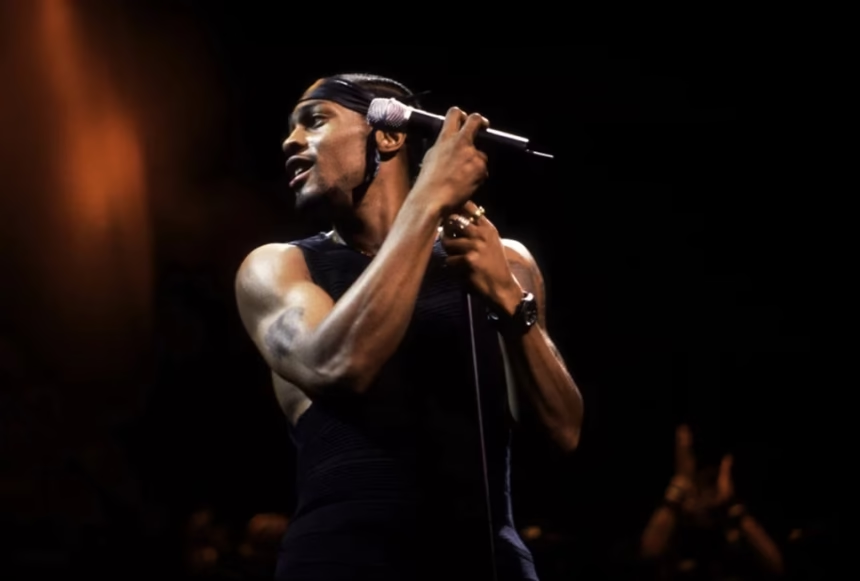NEW YORK — Few artists have reshaped modern soul the way Michael Eugene Archer did. Known worldwide as D’Angelo, he married a velvet falsetto with deep groove, live band craft, and fearless songwriting. D’Angelo’s music bridged eras, drawing a line from church pews to late-night studios, from 1970s soul to hip-hop’s swing, and from private prayer to public chorus.
Born on 11 February 1974 in Richmond, Virginia, the son of a Pentecostal preacher, he was playing piano in church by five. He left school as a teenager to focus on music, steeped in the work of Al Green, Marvin Gaye, George Clinton, Fela Kuti, and Prince. That last influence stayed close to his heart. D’Angelo told Rolling Stone that Prince’s mix of styles unlocked his own path, and that adventurous streak never left his records.
Early Breakthrough and the Neo-soul Blueprint
His first major credit arrived in 1994 with U Will Know, written and produced for Black Men United on the Jason’s Lyric soundtrack. The single, packed with voices from Usher, Boyz II Men, and others, reached No. 5 on Billboard’s Hot R&B/Hip-Hop Songs chart and introduced his tone to a wide audience.
Brown Sugar followed in 1995 and changed the temperature of R&B overnight. He was 21 and already pushing a live-in-the-room sound, with bass, Rhodes, and drums leading the way. The album went platinum within a year, earned four Grammy nominations, and climbed to No. 4 on the Top R&B Albums chart. Brown Sugar and Lady became fixtures on the radio, and their warm, unhurried feel helped define the rise of neo-soul alongside peers like Erykah Badu and Maxwell.
The late 1990s saw D’Angelo working inside a circle of restless talent, the Soulquarians, with Questlove, J Dilla, Q-Tip, and Mos Def, among others. He contributed keys and vocals to The Miseducation of Lauryn Hill in 1998, co-writing the duet Nothing Even Matters. That same year, Live at the Jazz Café captured his band tackling Smokey Robinson’s Cruisin’ and Earth, Wind & Fire’s Can’t Hide Love, a nod to the elders he studied and loved.
Voodoo, Fame, and the Price of Visibility
Voodoo arrived in 2000 and landed at No. 1 on the Billboard 200 with first-week sales of 320,000. Loose, humid, and recorded like a jam session, it sold more than 1.7 million copies and drew praise as a masterwork. Untitled (How Does It Feel), directed by Paul Hunter, became a cultural flashpoint.
The single-take clip, stripped back to a voice and a stare, turned him into a sex symbol overnight. The video earned three MTV VMA nominations, including Video of the Year, but the glare brought its own strain. Those who worked with him later said the moment did not match his quiet intent, and the pressure weighed heavily.
The years that followed were rough. D’Angelo faced legal issues, including a drug possession arrest in 2005, and survived a serious car crash that same year. Struggles with addiction and label conflicts kept him quiet for long stretches.
Speaking to Interview in 2013, he said the music business could push a purist to the edge, and that holding the art line felt like walking a tightrope. He showed up here and there, covering Prince for a film soundtrack and dropping in on collaborations, but the long pause stretched on.
Black Messiah and the Return of a Standard Bearer
The silence broke in 2014 with Black Messiah, released without warning, with his band The Vanguard. It was sharp, funky, and political, and it hit No. 1 on the Top R&B/Hip-Hop Albums chart. Critics hailed it as a bold return. Really
Love drew top honours, and the album’s raw feel grew out of marathon sessions with close friends and long-time allies like Questlove. The Second Coming Tour that followed ran across continents, 57 shows of sweat and joy, where audiences sang like a choir and the band fed off that energy.
D’Angelo’s fingerprints can be heard across today’s R&B and beyond. Anderso, Paak’s bounce, SZA’s intimate phrasing, and the loose swing in many live-focused acts trace back to his blend of jazz voicings, gospel roots, deep funk, and hip-hop rhythm.
RCA Records once praised him for fusing soul, funk, gospel, R&B, and jazz with a hip-hop sensibility, and it rings true across three decades of work. In 2023, Rolling Stone placed him at No. 75 on its 200 Greatest Singers of All Time list, praising the unvarnished honesty in his delivery.
The Human Story Behind the Records
Behind the studio mystique was a working musician with a choir director’s ear. D’Angelo learned to arrange in church, stacking harmonies until they moved as one. Fame complicated that quiet craft. He kept his circle small, chose his moments, and guarded his family life. After Black Messiah, he preferred selective collaborations and the stage, where the band could stretch a groove until time felt elastic.
Accolades and a Lasting Mark
The catalogue is compact, the impact wide. Across 14 Grammy nominations, D’Angelo took home four wins:
- 2001 Grammy Awards: Best R&B Album (Voodoo); Best Male R&B Vocal Performance (Untitled [How Does It Feel]).
- 2016 Grammy Awards: Best R&B Album (Black Messiah); Best R&B Song (Really Love).
Brown Sugar went platinum and drew an Album of the Year nod. Voodoo topped charts and rewired the sound of live R&B. Black Messiah proved that a second act could be fierce, timely, and free.
D’Angelo’s Music Endures
D’Angelo made records that felt alive. The drums sat behind the beat, the bass spoke in full sentences, and the vocals left room for breath. He trusted the pocket, the band, and the listener. That is why the songs endure. They sound like people in a room, searching for the same chord at the same time.
He once said he loved teaching parts to choirs and hearing many voices move as one. That line explains his work. It is collective, soulful, and grounded in community. The records still feel warm to the touch, and the harmonies carry the weight of memory.
For anyone discovering D’Angelo now, start with Brown Sugar, sit with Voodoo, then let Black Messiah hit at full volume. The story of modern soul runs through those albums. They remain timeless, and they still surprise.














